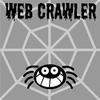The goal of database question answering is to enable natural language querying of real-life relational databases in diverse application domains. Recently, large-scale datasets such as Spider and WikiSQL facilitated novel modeling techniques for text-to-SQL parsing, improving zero-shot generalization to unseen databases. In this work, we examine the challenges that still prevent these techniques from practical deployment. First, we present KaggleDBQA, a new cross-domain evaluation dataset of real Web databases, with domain-specific data types, original formatting, and unrestricted questions. Second, we re-examine the choice of evaluation tasks for text-to-SQL parsers as applied in real-life settings. Finally, we augment our in-domain evaluation task with database documentation, a naturally occurring source of implicit domain knowledge. We show that KaggleDBQA presents a challenge to state-of-the-art zero-shot parsers but a more realistic evaluation setting and creative use of associated database documentation boosts their accuracy by over 13.2%, doubling their performance.
翻译:数据库问题解答的目标是,使各种应用领域真实生活关系数据库的自然语言查询能够进行。最近,诸如蜘蛛和WikisQL等大型数据集为文本到SQL的剖析提供了新型模型技术,改进了对隐性数据库的零光概括化。在这项工作中,我们研究了仍然阻碍这些技术实际应用的挑战。首先,我们介绍了KaggleDBQA,一个新的真实网络数据库跨域评价数据集,有特定域的数据类型、原始格式和不受限制的问题。第二,我们重新审查了在现实生活环境中应用的文本到SQL分析器的评价任务选择。最后,我们用数据库文件来增加我们内部的评价任务,这是一个隐含域知识的自然来源。我们表明,KagleDBQA对最新零光分析器提出了挑战,但更现实的评估设置和创造性地使用相关的数据库文件提高了13.2%的准确度,使其业绩翻了一番。




